Disclosure: Meeple Mountain received a free copy of this product in exchange for an honest, unbiased review. This review is not intended to be an endorsement.
FORK, you should know, is an acronym. Fox, Owl, Rabbit, Kale. FORK is also a joke. This family-weight trick-taking game for 2-6 players is themed around the food chain. Foxes eat owls and rabbits, owls eat rabbits, rabbits eat kale, kale sits inert.
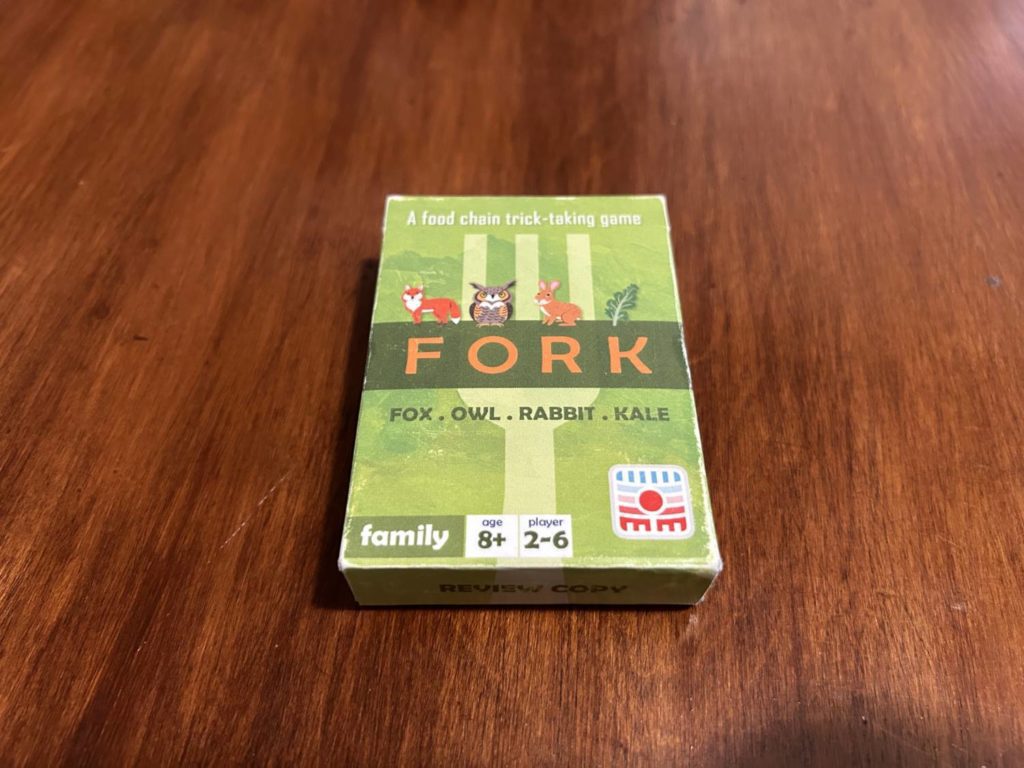
Each player is dealt one fox and a number of cards depending on the player count. You take turns playing a card face down to the middle of the table, then all cards are revealed and nature has its way. If there’s more than one fox, the foxes are discarded. If there’s one fox, the fox gets to eat an owl or a rabbit, provided there is one, and the player who played the fox keeps their meal as a scored card. If there is then an uneaten owl, the owl gets to eat a rabbit, provided there is one, and the player who played the owl keeps their meal as a scored card. If there is then an uneaten rabbit, the rabbit gets to eat a kale, provided there is one, and the player who played the rabbit keeps their meal as a scored card. Any kale that happens to survive this blood bath is kept as a scored card by the player who played it in the first place.
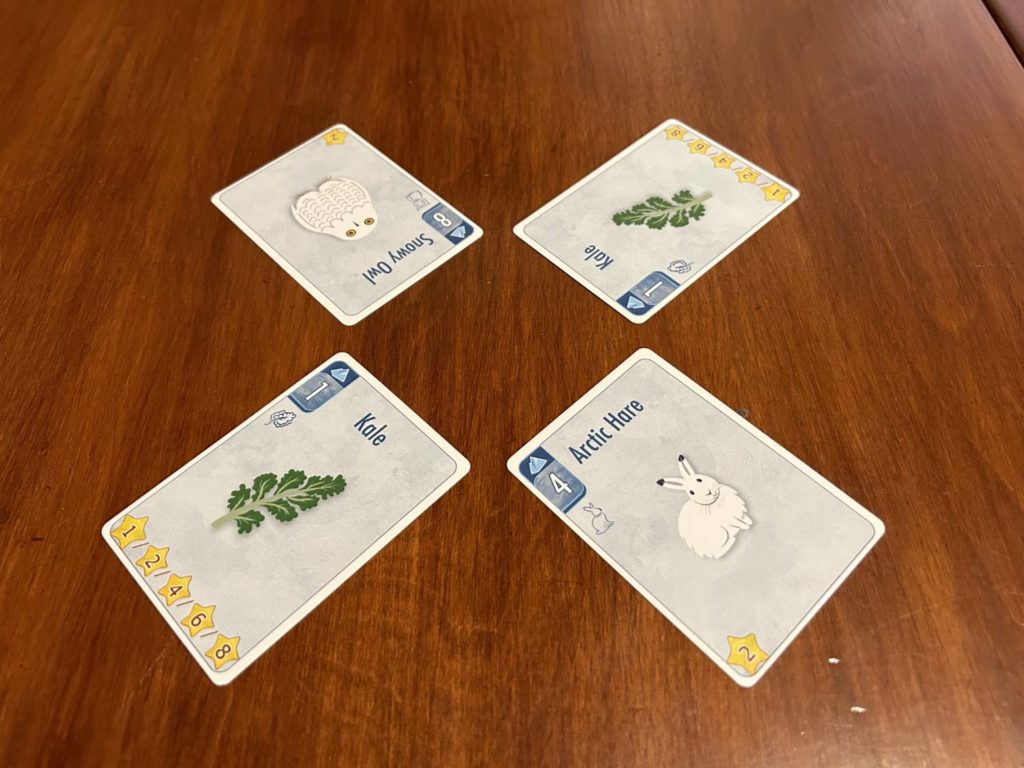
The game continues until either one player at the table has scored five cards or hands have run out. In either case, everyone adds up their score based on the points in the lower left of each scored card. The winner is the player with the most points.
I’d almost make the argument for FORK as a game of social deduction rather than a trick-taker. I mentioned before that the cards are played face down, but there’s a notable exception: kale. Kale is played face-up. This feels like a silly rule, but it does something interesting to the decision space.
If I’m the starting player and I play a kale, everyone else could play a kale too. That would make the round pretty simple, since we’d all keep our kale cards. But what if I’m the third player when the first player puts down a kale and the second player puts down something else? Now I have to ask myself, did the second player put down a rabbit to try and snag that kale? Or did they put down an owl to anticipate someone else doing the same? They could also be risking their fox. Should I now play a rabbit, or a kale, or an owl, or my fox?
That kind of thinking takes a couple of turns to occur to you, but occur it does, even if it isn’t quite satisfying. The problem could be that keeping count of animal cards is harder than keeping count of numbered cards. Even if you don’t have a detailed list in your head while playing a trick-taking game with standard or numbered cards, you have a certain amount of instinct, an internal topography of what’s left.
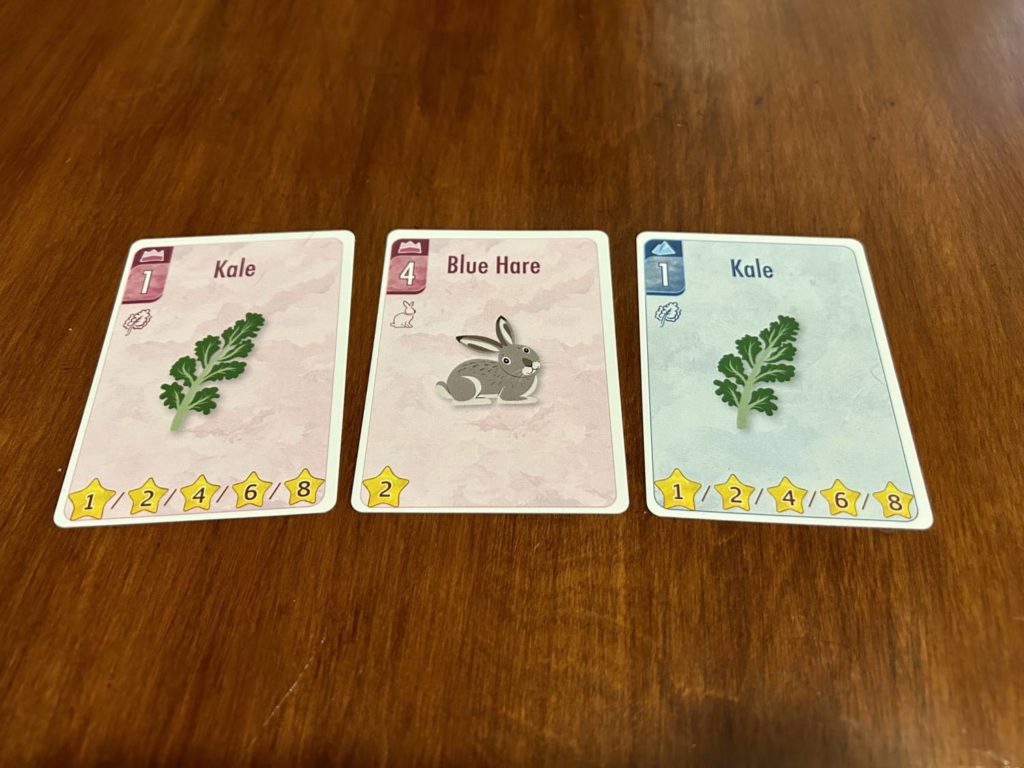
All six games of FORK that I’ve played—including four with children of about nine—have ended with the players at the table unmoved. After their first game, the kids wanted to try again, but they were over it by the second. My roommate finished our game by saying “I’d play it two more times and then I’d be bored with it.” There you have it.
A final word, a tantalizing crumb, for those who are serious about their trick-taking games. By my sixth game, I was starting to see a bit more. I was getting a sense for counting the cards. The topography made a little more sense. I still didn’t have a strong response to the game, and I can’t tell if I’m at the edge of a precipice or if that’s all there is to it. I suspect the latter. That I am disinclined to keep exploring to find out also means something.
Nonetheless, I do find myself wondering what FORK would be like at a table of serious card players, with people who always know the count and choose their moves with mathematical precision. If you are part of such a group, you’re either going to find FORK’s face-down cards a wonderful change or infuriating silliness. I’d love to know which. It might be worth it to FORK around and find out.
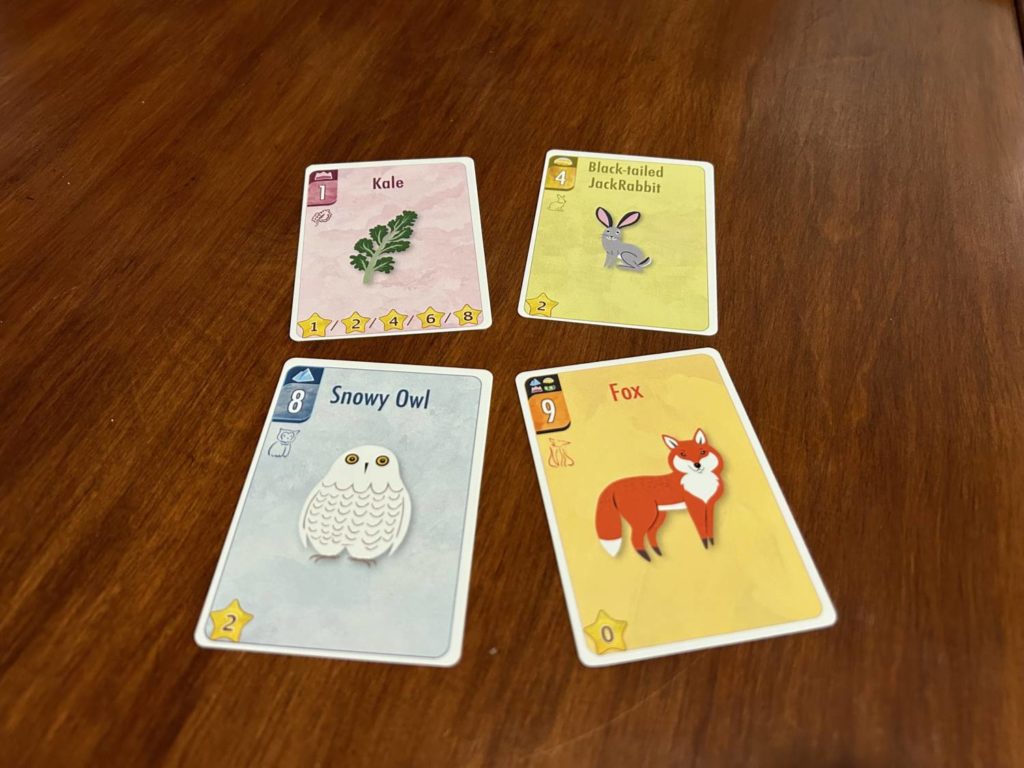


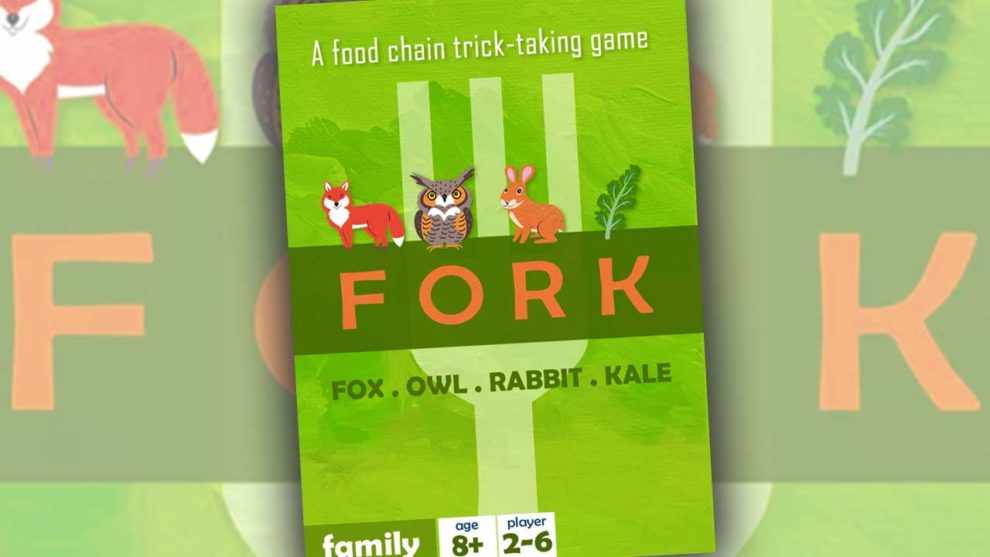








Add Comment